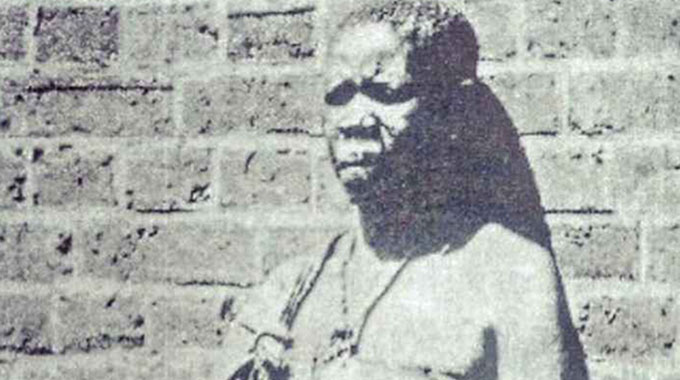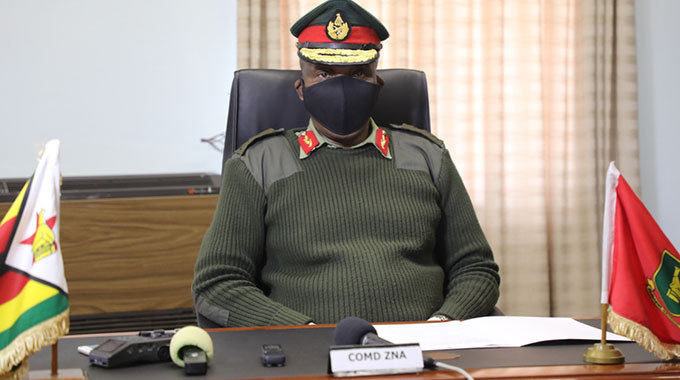Celebrating women’s role in liberation struggle

Freedom Mutanda Correspondent
August is a month that celebrates women and it is in the same month that the nation commemorates heroes of the liberation struggle and those who did remarkable deeds before and after independence for the good of Zimbabwe.
Africa has produced its fair share of heroines and Zimbabwe is no exception.
Queen Nzinga of Ndongo and Malamba easily comes to mind. Closer home we have Nehanda Charwe Nyakasikana who inspired a nation in the Shona and Ndebele uprisings of 1896-7. Female guerrillas fought tooth and nail to dislodge the white supremacist regime of Ian Smith and endured hardships, which an ordinary man could not and the final victory drums could not be beaten without acknowledging the female guerrillas and chimbwido’s input.
In the words of Chinese revolutionary Chairman Mao, ‘’political power grows out of the barrel of a gun’’. Politicians’ wives understood that concept, hence they endured lonely nights while their husbands languished in jail or in exile. Take Sally Mugabe whose husband alongside Edgar Tekere, Didymus Mutasa, Maurice Nyagumbo and Ndabaningi Sithole stayed in prison for a decade before their release due to diplomatic pressure. She is not the only one but her name comes out tops whenever there are conversations regarding the women who sacrificed so much for the freedom of Zimbabwe. There are men who left their wives who had to wait until the war ended to see their husbands. In some instances, they became widows.
These are the heroines of our nation, unsung, though. Maybe, they never got to get a pension payout for their husbands who died during the war whose remains are interred in unmarked graves in and outside Zimbabwe. Still, they are happy to have contributed in their small way to the emancipation of this great country.
Of course, Mama Mafuyana, Ruth Chinamano, Sunny Tombiyelanga Takawira, Maud Muzenda, Ruth Chinamano, Victoria Fikile Chitepo and Julia Zvobgo among others suffered the ignominy of looking after the children while their husbands strategised on achieving majority rule. These are the mothers of the revolution and they deservedly were interred at the national shrine.
A revolution cannot be achieved using one part of a system; women constitute more than half of humanity and Zimbabwe’s demographic data shows that more than 51 percent of the population are females; therefore, it was fitting that they became active participants from the moment the struggle took a decisive route in the early 1970s.
Mbuya Nehanda foretold that the Second Chimurenga was going to take longer than expected because women had been included, yet they went for their monthly periods.
A female combatant confided in this writer: “We never had any menstrual periods until we got independence.’’
Her claim was corroborated by other female fighters.
Imagine the hassle of trying to get sanitary wear if they had continued to enjoy the natural phenomenon that goes with being a woman. Questions remain on how the natural order of things was reversed at that moment in time. It is like seeing a person not sweating in the desert. At a time a lot of men looked at the formidable military machine of the Smith regime with fear, female cadres crossed the border and trained at various ZIPRA and ZANLA training camps. There were instructors who trained female combatants and when they went into the field of operation, the female comrades were not there to fill the numbers, but they struck fear in the white man’s heart. It is instructive that Cde Sheba Tavarwisa, was a member of the High Command and that is ample evidence of how female fighters were recognised during the war. Cde Joice Mujuru was an administrator at Chibawawa and more female fighters like Cdes Oppah Muchinguri, Vivian Mwashita among others thronged the training camps.
Some writers have zeroed in on the notion that female fighters were used for comfort by senior officers, which is a generalisation devoid of truth. From accounts by the former combatants, there was love just like in any situation where people meet, but it is oversimplification to say our sisters were there just to be office assistants.
A Manicaland Provincial hero, Jessica Mwaitireni Chapfiwa, also known as Mabhunu Muchapera, in her diary tells her story on how she survived the Chimoio attack by the brutal regime, which had violated international law by attacking Chimoio in Mozambique.
“To survive, I crawled among the dead. Rhodesians kicked the still, blood-soaked bodies to ascertain whether one was dead. If they noted that one was still breathing, they used pistols to finish that person off. My heart nearly stopped beating when a soldier kicked my backside. He continued on his way when I made no movement,’’ she narrated.
Mabhunu Muchapera was a political commissar and galvanised people to support the liberation war during pungwe meetings. Here was a woman who made her mark in a patriarchal society and went on to join the Foreign Office in independent Zimbabwe. She was accompanied to Mozambique by Cdes Esther Magudhu and Juliet Bangira in October 1976.
Back on the front, women played a critical role in the prosecution of the war. There was a Mutema spirit medium, Makopa, who guided guerrillas who came to her Ngaone area. She helped the comrades when they got injured by providing them with herbs to heal the wounds. Elsewhere in the country where the guerrillas were engaging the enemy, they got aid from female spirit mediums. The spirit of Makopa is said to have asked the nationalists to prepare a ritual which would ensure the smooth operations of the war and a member of the Crocodile GThis is a story for another day.
It is the women who kept the fire burning when chips were down. As the war intensified, the Smith regime put the rural folk (the bedrock of support for the guerrillas) into protected villages ostensibly to shield them from the terrorists yet in real terms, the settler regime wanted to break that supply of support to the freedom fighters.
In football, it was more like cutting the supply line to Messi to ensure that he does not get opportunity to score.
Women devised methods to feed the comrades. Their ingenious methods of placing manure into a basket and also include food was as clever as they come. Again, women feigned pregnancy for them to hide food for the guerrillas; that way, the supply line continued unnoticed and freedom fighters never went hungry.
Thandiwe Machuwaire, a female collaborator, commonly known as chimbwido recounted her group’s modus operandi: “We would wake up early in the morning and take bags of fertiliser to the fields. We would put food inside, but wrapped the food in separate plastic bags. We would sing a song as we passed the sentry, ‘usandimirira pagedhi; unondirovesa nababa.’ The guards would laugh and allow us to go out with our heavy bags without searching us.’’
It is ludicrous to leave out such an important cog in the story of how Zimbabwe got her independence. These are the women who did not blink when the Smith soldiers told them not to support the guerrillas, but they did so at the risk of paying the ultimate prize.
Their stories should be told through their availing their travails in the liberation struggle. It may be good to tell their children and grandchildren by the fireside, but it is more important to let a wider readership access their stories by ghost writing or writing them on their own.
Ordinary women had a lot to do in advancing the liberation struggle. By allowing their children to cook and carry the food to the fighters, that was overt approval of the liberation fighters.
These are the women who would sanction the slaughtering of chicken to make appetising meals . These are the women who encouraged their sons to take up the gun and liberate the whole of Zimbabwe.
Thousands of men were detained or restricted because of their overt support for the liberation.
In the wider scheme of things, it is the man who should take care of the home by being a householder; now, with the man of the house under detention, the woman had to rise up and fend for the family.
Thousands of women took care of their families in their husbands’ absence and these are our silent heroes whose stories need to be told, heard and read.
We shall forever be indebted to the mothers of the revolution; as we celebrate Heroes Day, spare a moment for these mothers of the revolution. They did not stand akimbo as the war was prosecuted; they jumped into the fray and became part of the solution.








Comments